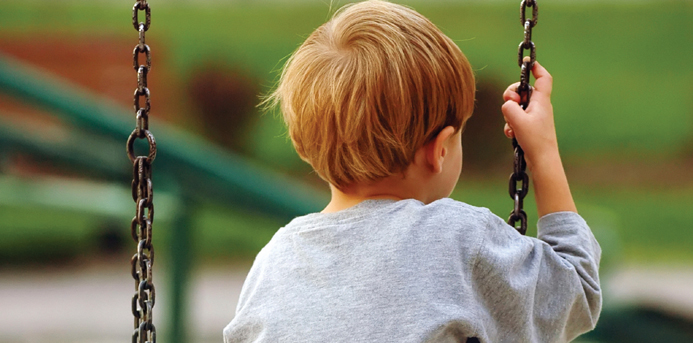Your child gets smacked by a kid in the sandbox and you watch in dismay as their parent does nothing. If your first instinct is to discipline the kid, take a deep breath, cowboy, and think before you shoot from the hip. Discipline means different things to different people, and your method might be unacceptable to another parent.
Consider my friend (we’ll call her Jane), a northwest suburban mom who stopped socializing with another mother because she always disciplined her children before Jane had the chance to do it herself. Even worse, the other mom used blame and humiliation, a tactic Jane thought was damaging. It turns out, the experts agree.
“People think discipline is about instilling shame and punishing—it’s not,” says therapist Mallory Rose of The Family Institute at Northwestern University. “Discipline means to teach.”
When you discipline someone’s child, you take away the teachable moment and embarrass the parent for not handling it. It’s asking for trouble, Rose says, because much of their identity is tied to being a parent. Instead inform them of the incident and let them handle it.
Playground Politics
The parent present is the parent in charge, say Dr. Margo Jacquot, director of The Juniper Center in Park Ridge and Northfield.
“It’s OK to intervene, as long as you’re not bullying or labeling the child. Discipline is correcting the behavior,” Jacquot says. “Focus on the behavior and the lesson you want them to learn from it.”
A writer for Traveller magazine prompted a worldwide discussion when she chronicled her international flight on which a child had a seven-hour tantrum and the parents failed to discipline young girl. Although many passengers were frustrated, nobody on board spoke up. While not everyone who engaged in the discussion online agreed with keeping mum, it was the appropriate choice, according to Evanston therapist Dan Gill.
“If it’s going to be effective, discipline needs to come from an established relationship that involves some measure of trust,” Gill says. “You don’t have that key ingredient with another person’s child.”
Take Away the Controversy
Never discipline a child without their parent’s permission, says Dr. Edward Christopherson, author of “Parenting that Works” (APA Books, 2003). Before a playdate, ask, “In the unlikely event that there’s disruptive or inappropriate behavior on either child’s part, can we agree on how we’re going to handle it?” If you cannot agree, he says, find another playmate.
Whenever you’re tempted to discipline someone else’s child, know that it could lead to a confrontation about overstepping boundaries. Before you act, ask yourself, “Is it worth it?”

